Throughout the last two weeks, I’ve been playing through Wo Long: Fallen Dynasty, the latest Soulslike title from legendary developer Team Ninja. Like the fan-favorite Nioh games before it, Wo Long is built around stylish skill-based melee combat, complete with a wide variety of different weapons, moves, and abilities to choose from and master.
It’s also designed to be much faster and deadlier than Nioh, though, and as a result, it’s significantly more intense as well. I wasn’t sure how I felt about Team Ninja’s shift towards this direction going in, but now that I’ve fully completed the game, I can confidently say that this is an absolute must-play for Soulslike fans. The core combat system and the mechanics that complement it are incredibly satisfying to engage with, and the game’s presentation is stellar, too. It’s not perfect, as there’s room for improvement with the story and a few systems, but overall, Wo Long: Fallen Dynasty is a triumph. Don’t miss it when it launches March 3 on Xbox, PC, and Xbox Game Pass.
Disclaimer: This review was made possible by an Xbox Series X review code that was provided by Koei Tecmo Games. The company did not see the contents of the review before publication.
Wo Long review: Gameplay and combat systems
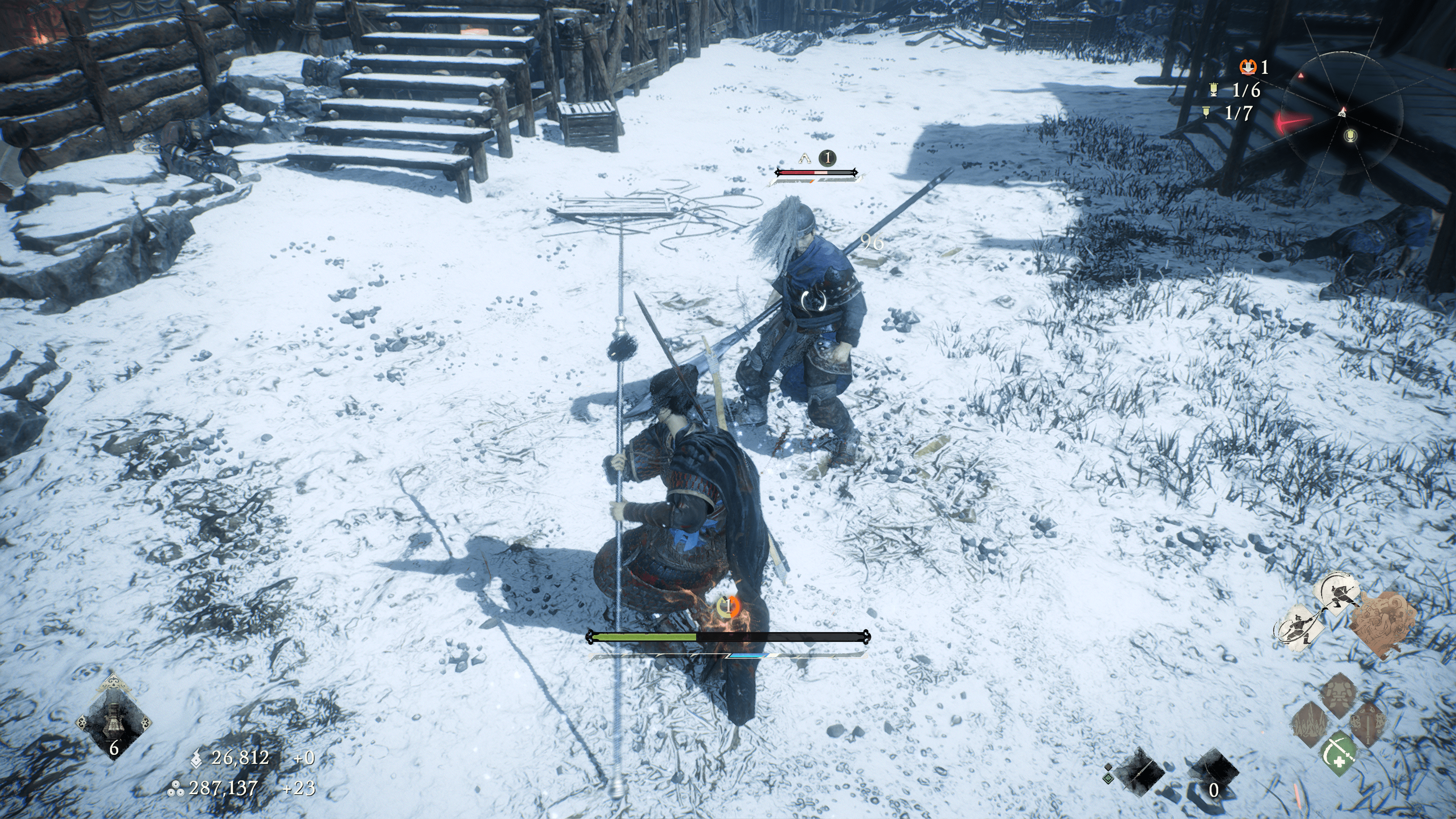
If the Nioh series was Team Ninja’s spin on games with the measured and methodical stamina-based battles of Dark Souls, Wo Long: Fallen Dynasty is its take on the blisteringly fast, aggressive, and brutal swordplay of Sekiro: Shadows Die Twice. Like Sekiro, Wo Long promotes offensive play by ditching the stamina bar completely, replacing it with a Spirit Gauge that both you and your enemies rely on. It increases when you land melee hits or deflect incoming strikes with a well-timed parry, but decreases if you dodge, block attacks, or get hit by one. You’re unable to defend yourself for several seconds if your Spirit Gauge is fully emptied, but if you manage to deplete your opponent’s, you can land a deadly Fatal Blow for massive damage.
One of Wo Long’s unique twists, though, is that your Spirit is more than just a representation of your posture. It’s a full-fledged combat resource that’s used in battle to perform special attacks like Spirit attacks or Wizardry Spells. The former shrink an enemy’s Spirit Gauge when they land, while the latter can be used to buff yourself, temporarily enhance your weapon, launch ranged magic at foes, and more. Martial Arts — gorgeously animated and devastatingly powerful moves that your opponent can’t block — also require Spirit.
| Developer | Team Ninja |
| Publisher | Koei Tecmo Games |
| Genre | Action RPG, Soulslike |
| Install size | 74.24GB |
| Players | Single-player, multiplayer |
| Playtime | ~40 hours |
| Retail price | $59.99 |
| Platforms | Xbox Series X|S, Xbox One, PS5, PS4, Windows PC (Microsoft Store, Steam) |
| Xbox/PC Game Pass | Xbox, PC, Xbox Cloud Gaming |
| Reviewed on | Xbox Series X |
Since Spirit is both fuel for your best attacks and a defensive resource, managing it effectively is a wonderfully dynamic process that requires some careful thinking. Spirit attacks, Martial Arts, and Wizardry Spells can give you a big edge when you use them during windows of opportunity, but get careless and you’ll overexert, leaving you defenseless. Players able to strike a good balance between using, increasing, and maintaining their Spirit Gauge will be rewarded with more frequent opportunities to spawn a Divine Beast, a mystical being that provides potent assistance when called upon.
On the whole, Wo Long’s Spirit-based combat is very difficult, but it’s an absolute blast once you get into a good rhythm. Every enemy and boss in the game has consistent and well-telegraphed attacks that you can master with practice, and perfectly deflecting them between your own strikes is immensely satisfying. Some Wizardry Spells cast too slowly to be reliably useful in a game as fast as Wo Long, though I’ve enjoyed making them work where I can.
Wo Long’s Spirit-based combat is very difficult, but it’s an absolute blast once you get into a good rhythm.
Combat also has direct ties to the exploration of Wo Long’s levels, which are generally more open and dense than the ones from the Nioh games. Both you and your enemies have a mission-specific Morale Rank, which is an indicator of strength. Having a higher Morale Rank than a foe will increase your damage dealt against them and reduce your damage taken from them, and vice versa. You raise your Morale Rank by defeating foes, and can also do so by finding Battle Flags and Marking Flags. The former act as traditional major bonfire-style checkpoints, while the latter are single-use markers that fully heal you. Activating these flags also increases your Fortitude Rank, which determines what your base Morale Rank will be when respawning after death.
Fully combing through each stage is very rewarding, as by unlocking every flag, you’ll typically give yourself a Morale Rank advantage against tough enemies and bosses. Clever explorers that find ways to flank or climb up to high ground will also have chances to perform stealthy takedowns, as if you’re able to sneak behind or above an opponent without them noticing, you can land an easy Fatal Blow. Aside from heavily damaging them (or killing them outright if they’re a weak foe), Fatal Blows also reduce enemy Morale by a level, making them a bit less threatening for the remainder of the fight than they’d be normally.
You’re not the only one with the ability to diminish Morale Ranks, though. Enemies and bosses can knock yours down by hitting you with a Critical Blow, which can be identified by a crimson red glow and a special animation. These attacks can’t be blocked and inflict some serious pain when they land, but if you deflect them, you’ll perform a flashy counter-attack that deals huge Spirit damage and leaves the foe wide open to some offensive follow-up. Learning how to consistently parry these attacks is tough, but once I was able to, doing so quickly became one of my favorite parts of Wo Long’s combat encounters.
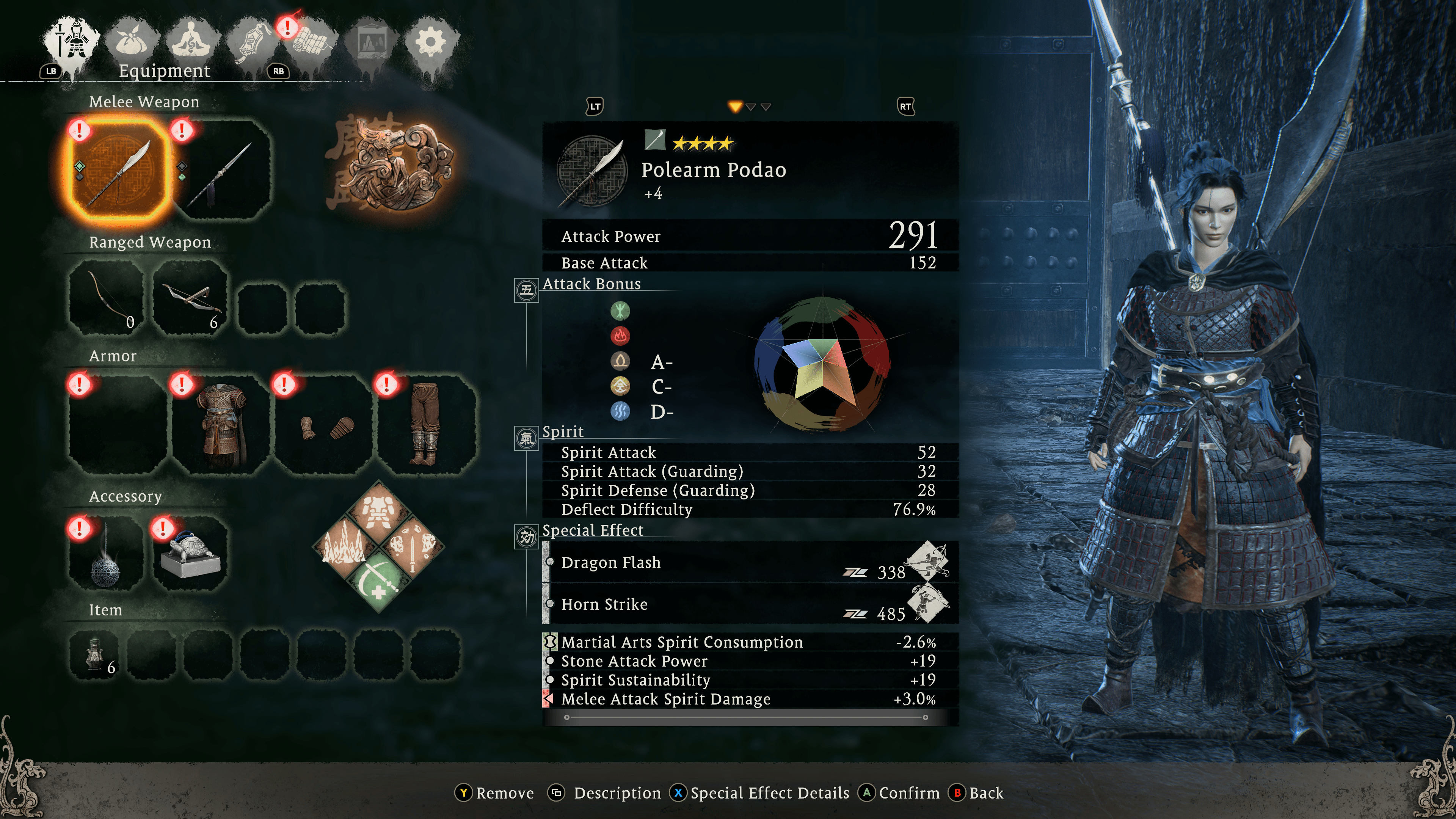
In addition to the Morale mechanic, there’s also an overarching leveling system that allows you to raise your character’s attributes as you progress through the campaign. These are represented as the “Five Phases” — Wood, Fire, Earth, Metal, and Water — from Chinese philosophy. Improving these raises your HP, and depending on which ones you choose to build into, they’ll also help you gain more Spirit from attacks or deflects, hold onto a high Spirit Gauge for longer, equip heavier armor without negative consequences, and move around more stealthily. Certain weapons also scale differently with different Phases, though ultimately, you can use whatever you want and get by just fine. Mercifully, you can respec your character for free once you reach a certain point in the story, so you don’t need to worry about making permanent mistakes when putting together your build.
Speaking of gear, it’s the one part of the gameplay experience that I was disappointed by. There’s a solid variety of weapons and armor to collect, but there’s not any distinctive loot that stands out with special effects or moves. The best you can look forward to are rarer versions of items that have more slots for stat-tweaking Embedment upgrades (think Bloodborne’s Blood Gem system). The lack of unique rewards is a shame, especially since they’d fit right in with Wo Long’s exploration-focused level design. It’s not a huge problem, but it does bum me out a bit.
Wo Long review: Story, characters, and world
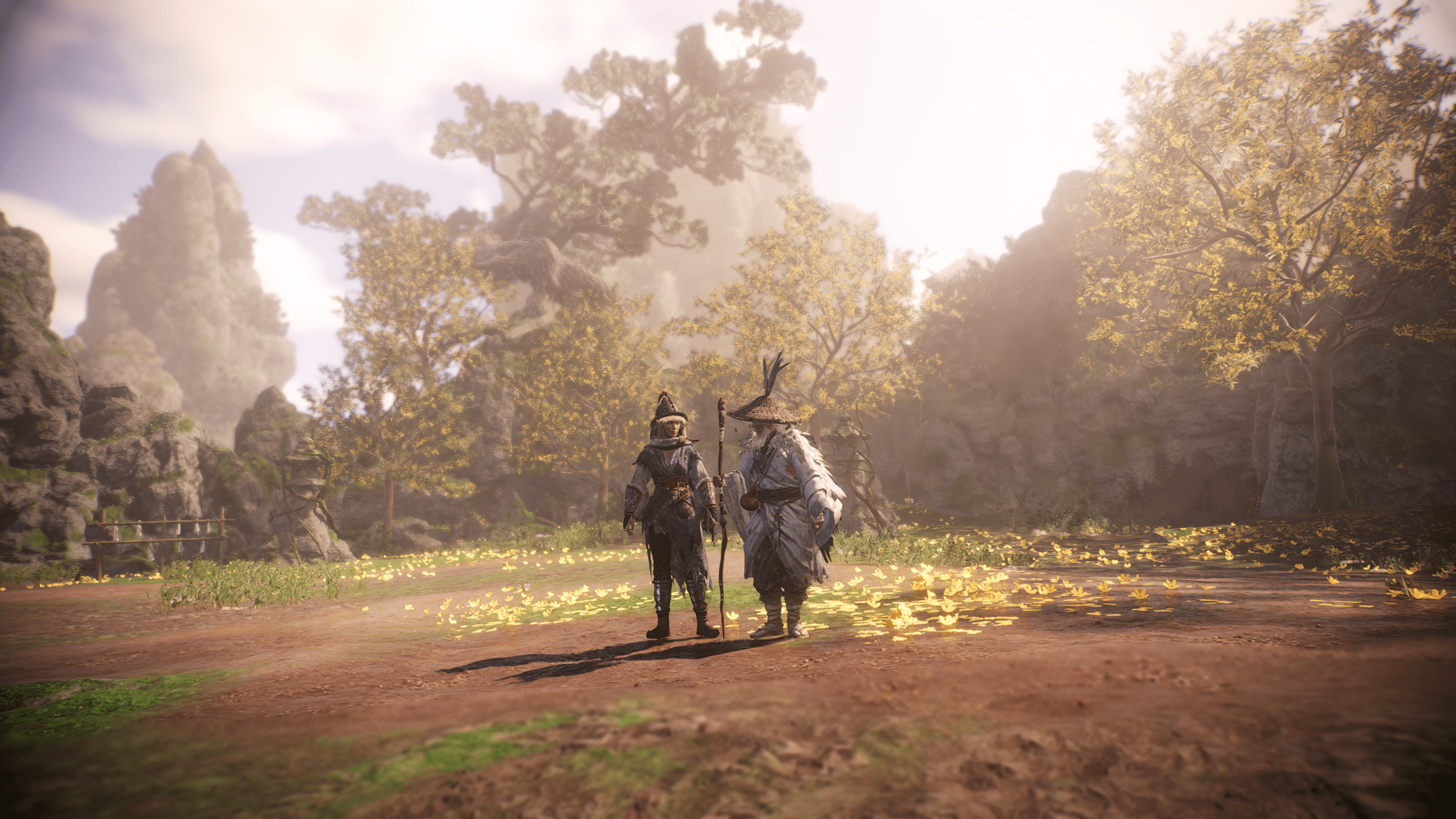
The story of Wo Long: Fallen Dynasty is inspired by the Luo Guanzhong’s 14th-century novel Romance of the Three Kingdoms, and takes place in China during a fictional version of the Later Han Dynasty period. In it, vicious demons and a mysterious elixir that is suspected to hold the key to immortality bring chaos and devastation to the land. You control a nameless mercenary that rises up amid the ruination, defeating numerous deadly foes and banding together with allies met on your journey as you fight to rid your homeland of the dark forces occupying it.
It’s a fun premise for a narrative, but much like Wo Long’s breakneck combat pace, the campaign’s story beats fly by so fast that you barely have any time to process them. Because of this, it’s difficult to connect with any of the characters in any meaningful way, and most of the game’s attempts at worldbuilding feel rushed and frantic.
The campaign’s story beats fly by so fast that you barely have any time to process them.
That isn’t to say that the writing is bad, because it’s definitely not. The characters are still quite likable despite their lack of development, and ultimately, I enjoyed my time with this exciting action-packed adventure. Some more depth and extra time for the story to breathe would have elevated it to greater heights, though.
Wo Long review: Visuals, graphics, and audio
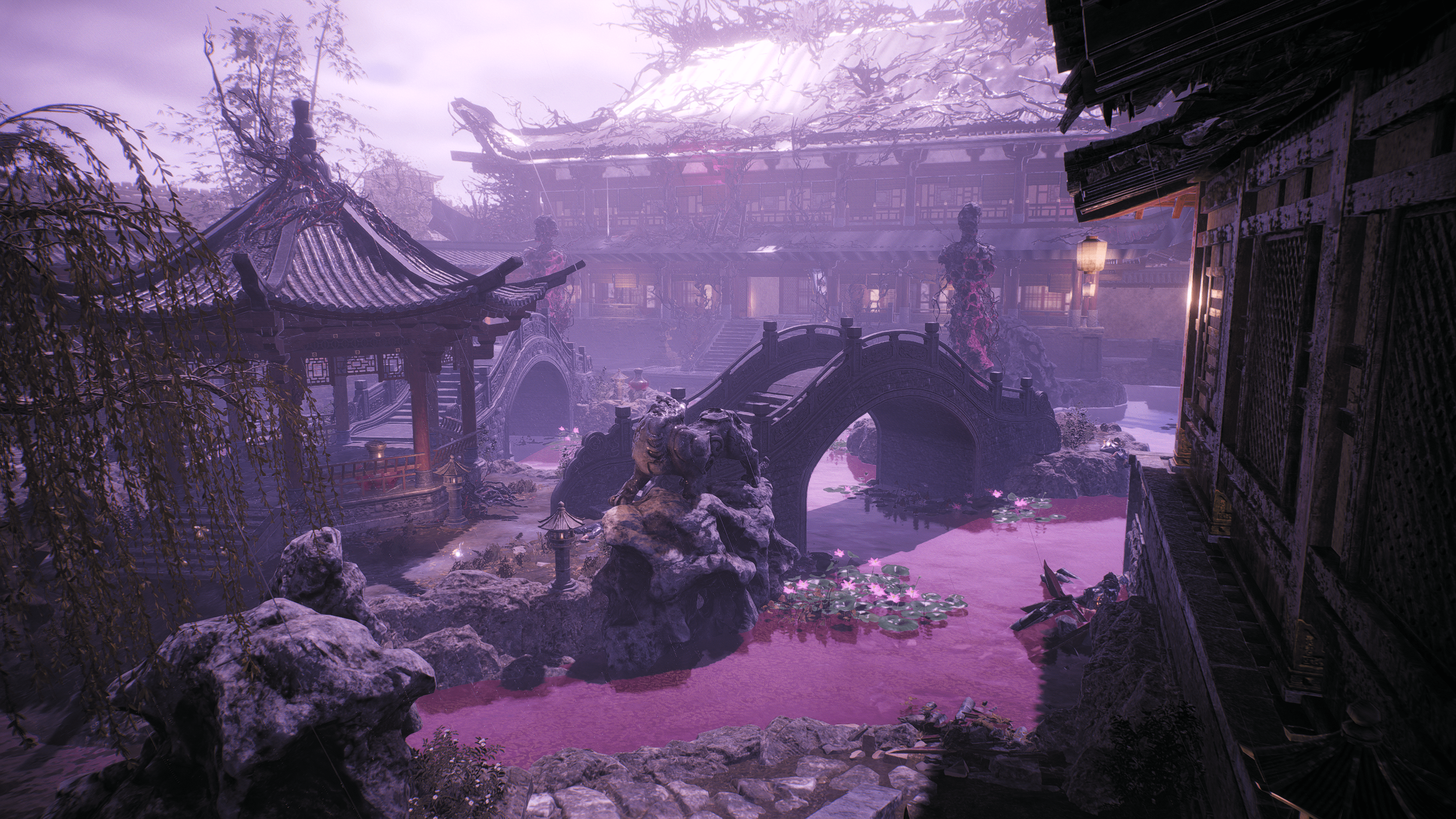
Wo Long isn’t the best looking game out there in terms of raw visual fidelity, as its models and textures are about on par with Team Ninja’s previous game from 2020, Nioh 2 (upgrades to lighting are very noticeable, though). With that said, it still looks fantastic thanks to the game’s impeccable art direction, which appealingly contrasts the vibrant beauty of Ancient China with the grimy black and red of the demonic corruption plaguing the land.
The story will take you through a diverse array of locations, ranging from simple grassland villages and verdant mountain settlements to snowy war-torn battlefields, ominous cave networks, and chilling underground dungeons. All of these environments have plenty of rich detail to appreciate, showcasing the impressive capabilities of Team Ninja’s art teams.
Thanks to the game’s impeccable art direction, Wo Long: Fallen Dynasty looks fantastic.
This excellence carries over to the audio, as the game’s score and its sound design are both strong. Expect an action-focused soundtrack with lots of energy and the use of traditional Chinese instruments such as the bamboo flute and the guzheng, as well as plenty of punchy and ethereal sounds that effectively sell the power of your melee attacks and magic spells, respectively. Overall, the developers have done a great job.
Wo Long review: Performance and stability
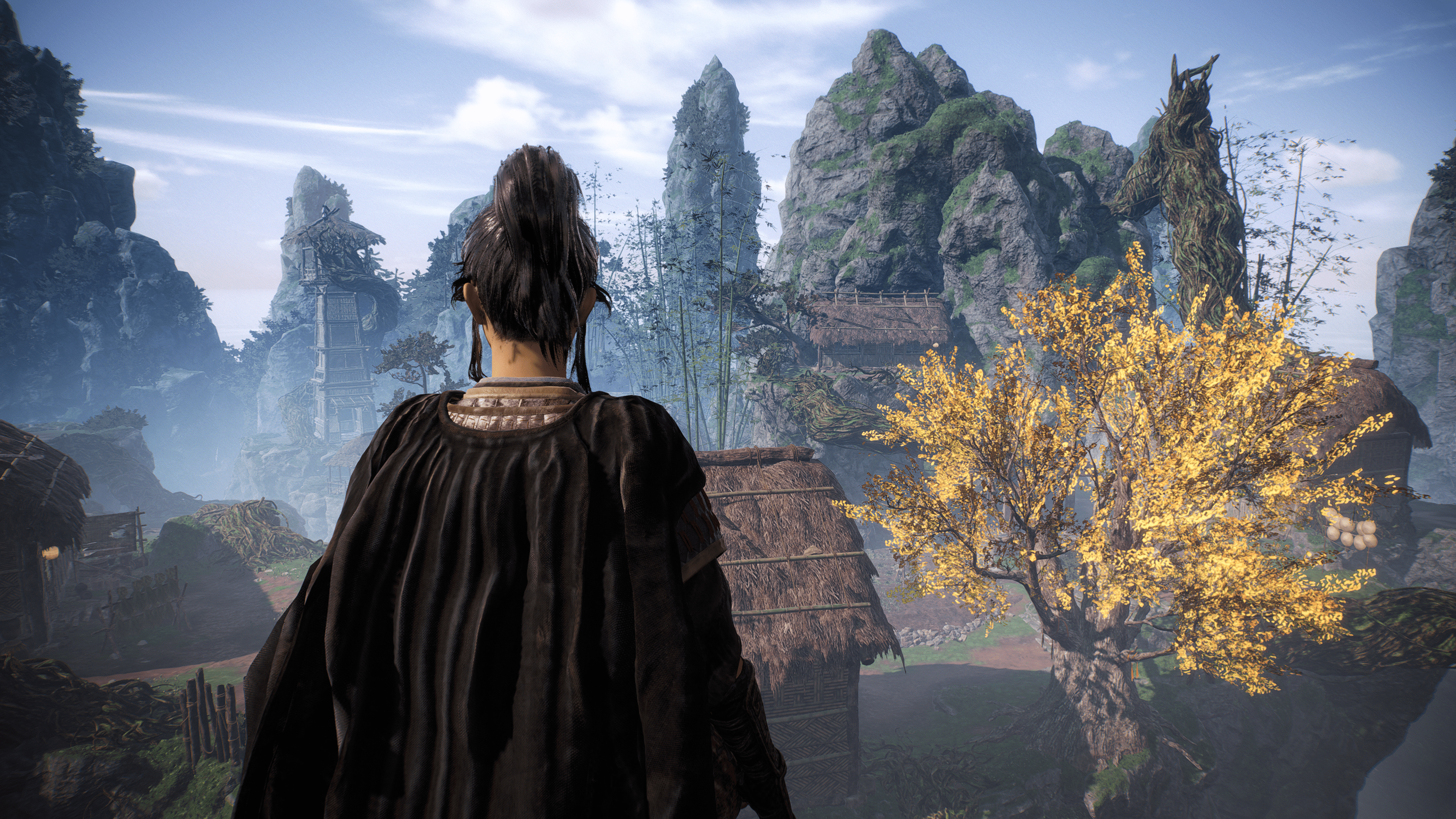
At least on Xbox Series X, which is the system that I used to play through the game, Wo Long is stable and doesn’t often fall below its 4K/60 FPS performance target (this is the target for PS5 as well). The game can be run in Performance Mode or Resolution Mode, with the former prioritizing framerate and the latter sacrificing frames to maintain max resolution when necessary.
On Xbox Series X, Wo Long is stable and doesn’t often fall below its 4K/60 FPS performance target.
With Resolution Mode active, I only experienced some minor frame drops when fighting bosses with particularly “busy” attacks, such as ones with lots of magic visual effects or projectile spam. These dips didn’t affect my ability to play the game at all, but if you find that they bother you, you can always opt for Performance Mode to have a buttery smooth experience no matter what’s happening on screen. Note that the game targets 1440p/60 FPS on Xbox Series S, 4K/30 FPS on Xbox One X and PS4 Pro, and 1080p/30 FPS on older consoles like the original Xbox One and PS4.
It’s worth mentioning that the game did crash while I was loading into a mission, though this only occurred a single throughout my entire 40+ hour playthrough. Therefore, I don’t expect that crashes like this one will be an issue for players.
Wo Long review: Final thoughts
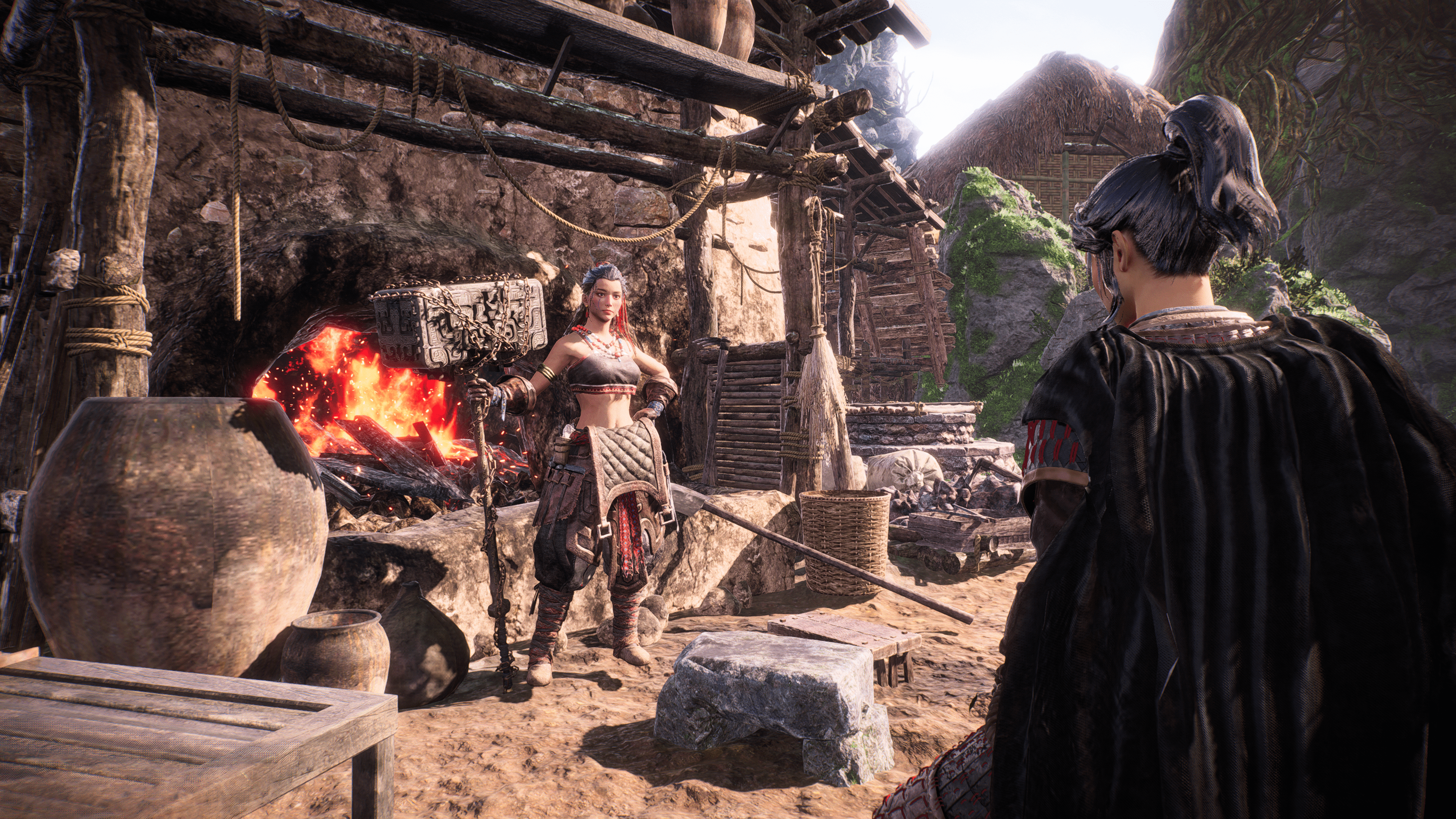
After spending two weeks battling skilled warriors and ruthless monsters alike throughout its gorgeous environments and engaging with everything the game has to offer, I’m happy to say that Wo Long: Fallen Dynasty might just be the best Team Ninja game yet. Its fast-paced swordplay is, much like Sekiro’s, brutally difficult. Once you get used to it, though, you’ll fall in love with the way it encourages you to dynamically balance your Spirit Gauge between offensive flurries and well-timed defensive dodges and deflects.
The narrative could be better, and the lack of unique weapons and armor is definitely unfortunate, too. In my eyes, though, these caveats don’t take much away from what is easily one of the best Xbox games I’ve played in recent memory. Don’t sleep on Wo Long if you’re a fan of the Soulslike genre, especially if you like aggressive, offense-oriented combat.




